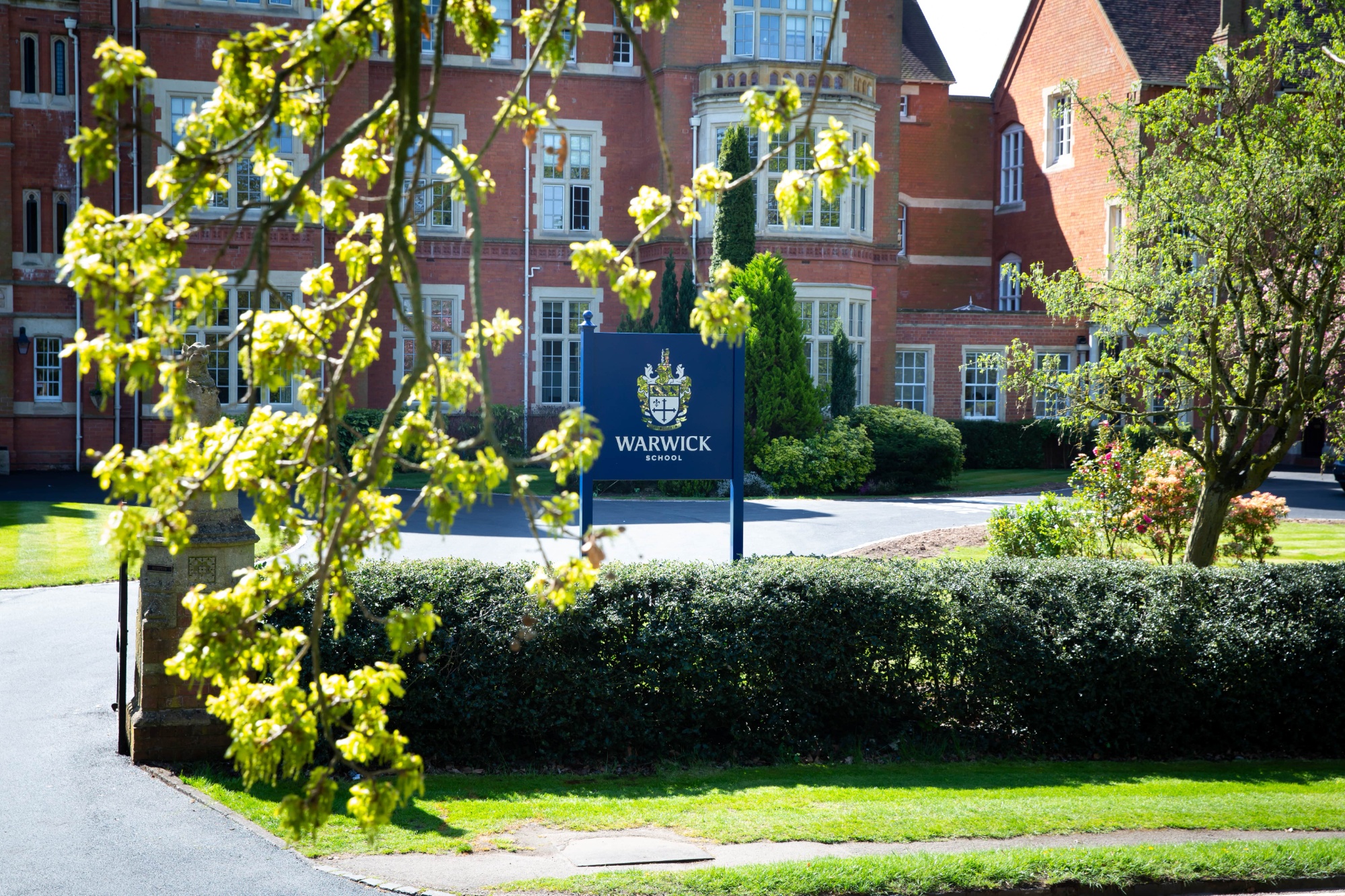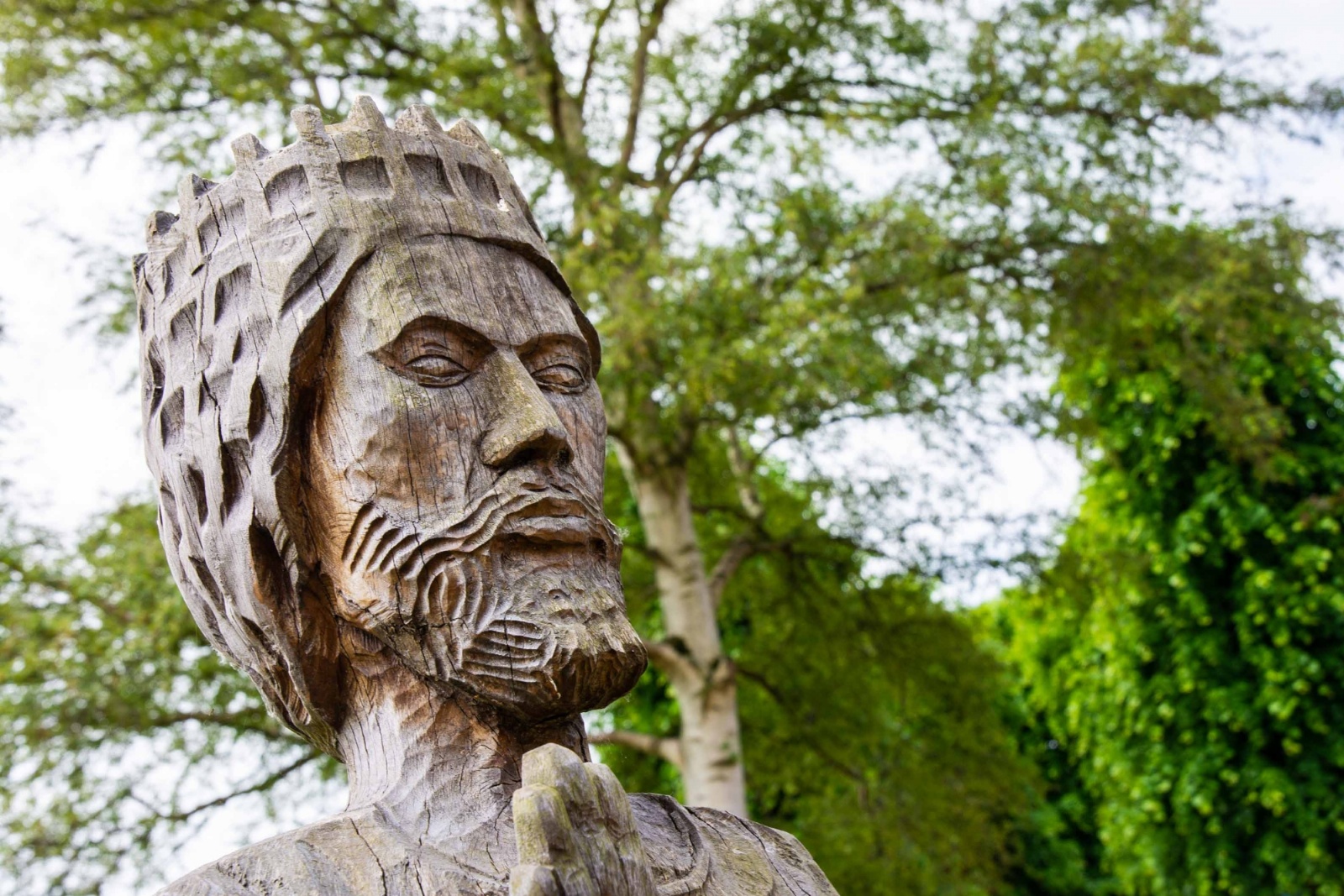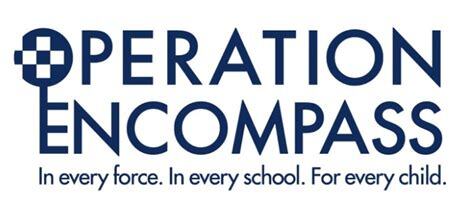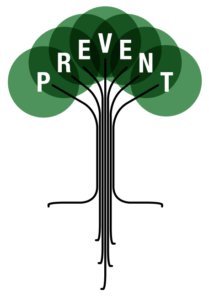Eudaimonia, Virtue Theory and the Warwick Way

As the first full week of the Summer Term draws to a close, I write this blog looking forward to tomorrow and watching Warwick School boys playing competitive sport against another school for the first time in over a year. Consequently, even though for now at least, most day-to-day arrangements remain the same, I am filled with optimism that the coming weeks will bring a gradual return to normal.
The start of a new term and the beginning of the longed-for return to normal has led me to reflect on our purpose. Warwick School exists to inspire and nurture every pupil to thrive in the world both now and in the future. Never has the question of how we prepare our pupils with not only the knowledge and skills they need, but also with the capacity to thrive in the face of challenge and adversity been more important. Monday’s INSET day was an opportunity, not only to prepare for the coming term but also for the staff to reflect on this question and start thinking about a curriculum that will prepare Warwick School boys for life in 2050. The past few months have been a challenging time for everyone but especially so for young people faced with a rapidly changing and increasingly complex world and moral landscape. Schools have a duty to try and equip their pupils with a good moral compass that will allow them to successfully navigate this terrain. In a century of a world of
“unprecedented transformations and radical uncertainties.’” (21 Lessons for the 21st Century - Yuval Noah Hararri)
is the traditional approach to morality in which actions are either right or wrong, broken? The modern world is so complex that it is now impossible to simply provide a list of moral rules that an individual can refer to and be assured that they are acting morally. Consequently, many schools need to re-think their approach to moral education. The alternative approach, that the morality of an action is defined by its consequences is not without its problems either. Should individuals be judged on the basis of outcomes they could not reasonably have been expected to anticipate? Perhaps then Aristotle’s Virtue Theory provides a better basis for moral education. Unlike the majority of ethical theories, Virtue Theory does not attempt to define good actions but good people, and the qualities they possess that make them good. Aristotle believed that every action is directed toward some aim or good. There are superior and subordinate aims. Subordinate aims are a means to achieving a superior aim and according to Aristotle there is one final aim desired for its own sake and this final aim is happiness.
‘What is the highest of all practical goods? It is happiness.’ (The Nicomachean Ethics – Aristotle)
Not just happiness for the individual but happiness for the community as a whole.
‘If then our activities have some end which we want for its own sake and for the sake of which we want all other ends….it is clear that this must be the good. While it is desirable to secure what is good in the case of the individual, to do so in the case of a people or a state is something finer and more sublime.’ (The Nichomachean Ethics – Aristotle)
Eudemonia is the term used by Aristotle for the collective happiness of the community as a whole. A good person is someone who possesses those qualities of character that promote eudemonia and these qualities are known as the virtues. Aristotle identified twelve moral virtues, including courage, proper ambition, patience, truthfulness, wittiness, friendliness, and modesty and modern virtue theorists such as Elizabeth Anscombe and James Rachels have identified alternative sets of virtues.
Arguably then, in the modern world moral education cannot be a question of pupils learning a set of absolute moral rules or gaining understanding of a calculus that allows them to evaluate the consequences of a potential action. Rather it is about character education, developing young people with those qualities of character that promote eudemonia. Young men who play a positive role in the world. Good men. The Warwick Way identifies the qualities of character that we seek to foster in our young men; curiosity, creativity, courage, perseverance, responsibility and humility, qualities that mean that our pupils make a positive contribution to the happiness of our entire community and help create a better world around them.
But what does it mean to be courageous or resolutely persistent? For Aristotle to be virtuous it is not enough to simply possess an abundance of courage. Aristotle taught that virtue was to be found in the Golden Mean. Each virtue is to be found between two vices, the vice of deficiency and the vice of excess. Courage is the Golden Mean – a coward does not have enough courage and the foolhardy man has too much, and blindly runs into danger. Someone who is persistent keeps trying to overcome challenges, where as someone who is irresolute gives up too easily on their projects and, someone who is intransigent pursues these projects even when there is considerable evidence that further progress is impossible.
Being a good man then is not about being an action hero or conforming to outdated male stereotypes, it does not even require you to be biologically male. Rather, it is about possessing a balanced character. It is about being curious rather than disinterested. Creative rather than unimaginative. Confident but not arrogant. Listening to and respecting others and putting them first, carrying yourself with grace, not boasting about your achievements but being comfortable with the worthy person that you are. Taking responsibility for your actions, trying to create a better world around us and being a positive role model, speaking against injustice and defending the innocent. It is about possessing the virtues.
Nor is being a well-rounded man about being perfect, we all have our faults and at times we all fall short, what is important is a willingness to admit when we are wrong or feeling weak, to speak up when we are struggling, or when we need assistance or are fighting a battle we know we just can’t win without a little help.
It is the school’s responsibility to inspire and nurture every pupil to be the best men they can be promoting those qualities of character that will help them navigate even the stormiest of seas. This is a responsibility that we take seriously and on Monday as we reflected about a curriculum that will equip pupils for life in the 21st Century, moral and character education was a significant part of these discussions.











